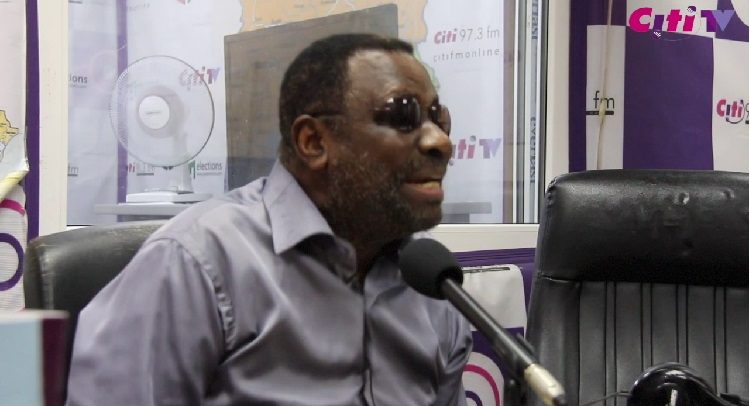IN the days before “wifi” gained supremacy in communications, something called “static” was regarded as one of the biggest enemies of radio transmission.
One tuned one’s “a.m.” radio to a favourite short- or medium-waveband frequency. One could hear the programme or message being transmitted, but behind it, one would be bombarded with a lot of background noise – usually produced by natural atmospheric “interference” (such as lightning) but also, artificial radio transmissions deliberately calculated to be so close to the desired station.
The latter phenomenon was known as “jamming”, and it was often used, during the “Cold War” years, to prevent people in one “political sphere” from hearing the “propaganda” directed towards them by a hostile power.
The name usually ascribed to the background noise that interferes with communications is “static”; it also affects communications between (say) one aircraft and another, or aircraft and airports. In other words, static is a threat to human safety.
Figuratively, static can be used to describe a situation whereby the competitors for political power in a country can be so steeped in contempt for one another that each side wants only its voice to be the one heard, or its proposals (if any) put into practice. Meanwhile, they usually forget that their contest of opposed wills is being played as drama watched by millions of people, known as the populace.
Now, the populace is never constituted by a uniform group in any country. There are rich and poor; the educated and the ignorant; young and old; as well as (of course) people of different genders. All these groups can be affected by the static that emanates from politics. A populace badly “infected” by political static becomes irrational and intolerant. We have seen from history that insurrections do get ignited in countries where no-one wants to hear the viewpoint of others any longer, and where political opponents become regarded as “enemies”. Off the top of my head, I can cite France (1789); Russia (1917) Germany (1933) China (1949) Italy (1922) and Spain (1936).
The tragic aspect of an insurrection is that as it unfolds, even people who would normally regard themselves as “sympathetic” to the viewpoint of those who have seized power, can be caught in the destruction that is set in train by the confused situation that occurs. “Revolutions eat their own children”, says a well-known political adage. The case of Maximilien Robespierre in France is one of the best examples of the tragi-comedy to which the adage alludes.
In Ghana, we saw how the first Government that achieved independence for us, led by Dr Kwame Nkrumah, destroyed the democratic constitution under which independence had been achieved, and adopted totalitarian measures until by 1960, Ghana had become a one-party state. The political “deafness” in the country, of course, led to the “booming” of guns on 24 February, 1966.
But guns can never really effect a satisfactory solution to political issues, and they kept booming without achieving anything much – on 13th January, 1972; then again on 5th July, 1978, then on 4th June, 1979 and 31st December, 1981. We have, thank God, not heard the booming of guns again in our body-politic since Jerry Rawlings, who had installed himself into power twice with booming guns, transformed himself into a civilian President on 7th January, 1993, and was followed by civilians – J A Kufuor, John Evans Atta-Mills, John Dramani Mahama and Nana Addo Dankwa Akufo-Addo.
Unfortunately, political discourse has recently taken a turn for the worse in the country. It suggests that the intolerance and contempt for compromise that marked our politics in some of our earlier years have returned. The amazing thing is that this has happened at the very time when the electorate has signalled, quite clearly, that it does not favour a “winner-takes-all” situation to operate in our body-politic any longer. The electorate has sat down and watched victorious politicians share out contracts to their favourites in society, whose lives suddenly become suddenly transformed, as a result of the largesse that comes their way from the coffers of the state.
Everyone is aware that state expenditure, when cornered, is the easiest way to become rich in this country. That being the case, ways must be found to ensure that the distribution of the largesse becomes fair and that the state machinery that presides over the distribution becomes scrupulously even-handed. For the truth is this: if the Opposition becomes convinced that its members also have an equal chance of enjoying favours from the state, it will not seek actively to bring down the state.
The positive message sent to the country, that with the election of an Opposition “bigwig” as the Speaker of Parliament, influence-peddling in the country was about to relatively die out, has suddenly evaporated. Top members of the NPP, in the Government and in Parliament, seem to be bent towards ensuring that their proposals – especially as regards the budget – must be carried out by all means.
I am afraid they are disappointing the electorate and that they ought, in their own educated self-interest, to seek to reach amicable “settlements” with the NDC – particularly, as regards the e-Levy and general conduct of parliamentary business.
There is a Twi proverb which comes to mind as I conclude this piece: “כba nyasafoכ yebu no bε, na yεnnka n’asεm!” [The wise person is to be spoken to, not in plain words, but rather in proverbs!”
A Happy New Year to all my Dear Readers!
By CAMERON DUODU


